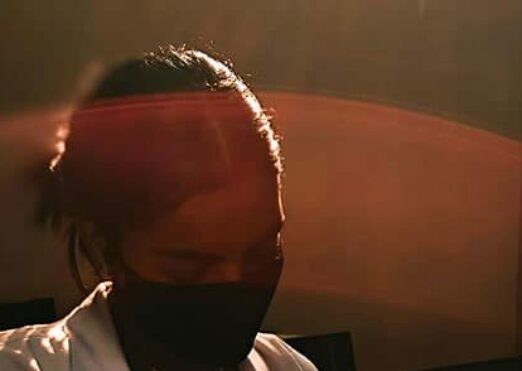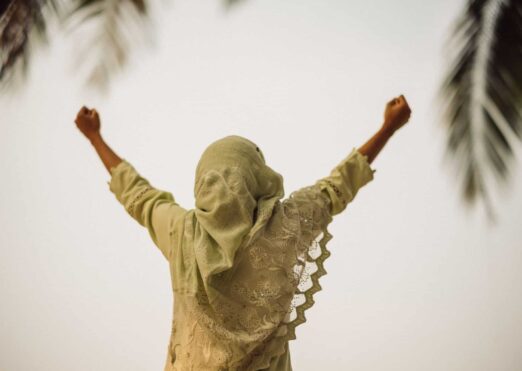A day in the life of a Victim Navigator
May 17, 2019
Last year, Justice and Care began working in the UK. A key part of the work is our Victim Navigator Programme – which sees us place team members into police forces in the UK, helping to bridge the gap between those that have been trafficked and the criminal justice system.
We sat down with one of our Victim Navigators to hear more about their front line work tackling human trafficking and modern slavery…
When did you first learn about human trafficking/modern slavery?
I first heard about the reality of modern slavery and human trafficking in my first year at university and I have been involved in addressing this injustice in one way or another ever since. It is such a privilege to support victims as they rediscover their value and voice, and to walk the journey to freedom with them.
How long have you been a Victim Navigator for?
I’ve been a Victim Navigator for just about 10 months! The time has flown by.
What is a Victim Navigator?
The Victim Navigator role is part of a two-year pilot programme testing the effectiveness of embedding Justice and Care Victim Navigators within several police forces in England, to broker and manage contact with rescued victims and bridge the gaps between victims and law enforcement. We aim to help victims navigate and secure more support post-identification. This includes informing survivors about their rights and options and helping them to access support either in the UK or in their home country.
Our hope is that through our advocacy work, victims will feel better supported and therefore be better able to support police with bringing their perpetrators to justice. As such, the role also involves supporting police and local stakeholders with training to help increase their confidence as they manage complex cases and act as first responders to potential victims. We collaborate closely with trusted partners in source countries to ensure end to end support, as well as to identify and share best practices for systemic change.
Why is it important for you to keep your professional identity relatively private?
My work involves supporting police with investigations into serious and organised crime, including helping victims exit ongoing exploitation at the hands of international organised crime groups. We are well aware that these groups are willing to do anything to make a profit, including treating humans as commodities. Any work that involves threatening significant profit margins can involve significant risk. Justice and Care take a very strong stance on protecting the privacy of all operational staff for these reasons.
Give us a taste of what a typical day looks like being a Victim Navigator?
A typical day in the life of a Navigator? It’s really hard to say, as the role has so many facets. One day, I might be in A&E all day trying to organise support for a newly identified potential victim, or in a sexual health centre providing support as someone gets tested for the first time post-rescue. Another, I can be found training an early turn police rota at 7am and then attending an Anti-Slavery Partnership Meeting.
Any day will typically involve checking through the police logs to see if any new investigations were opened overnight. If they were, I’ll read through the case, get in touch with the responsible officers and start to work with them towards our engagement strategy, including how I can support both them and the survivor. We’ll usually plan a joint visit to the survivor and then I’ll join in future visits with their other assigned support workers and attend court hearings with them as needed.
What makes Justice and Care different in the way we approach working with victims?
Justice and Care think about the whole picture in their approach to victim support – safeguarding, investigations, policy, international partnerships… it’s a really comprehensive and sustainable approach that addresses the immediate and long-term victim care needs without losing sight of the need for justice and systemic change.
Our close partnership with law enforcement in our operational work is also quite unique but absolutely core to our vision of seeing both justice and care equally and optimally addressed in our victim support work.
We have no cut-offs for our victim support, meaning our support will continue until we feel that the individual is stable, safe and ready to address any ongoing needs independently. We will also coordinate support with source countries, including accompanying the individual on flights as necessary, to ensure a smooth and seamless transition back home.
How does your role work alongside local police?
My role is unique as far as similar victim support roles go, in that it is fully embedded into my county’s police force. This means that I sit within the Public Protection Unit with full security clearance vetting and fast time knowledge about developing cases and rescue operations. Working so closely with police enables me to better inform survivors about the criminal justice process and support options available to them. It also means that police can immediately hand over victim support coordination to an independent specialist, freeing up their time to focus on the investigation.
In addition to direct victim engagement, I also deliver bespoke training across the force to support improved victim identification and care. Together with police, Justice and Care is able to provide wrap around, end to end support to survivors and specialist support and guidance to the investigation teams.
What has been one of your highlights so far?
One of the survivors I support was involved with police for nearly two years before she was informed about the support and entitlements available to her in the UK. Her first meeting with me was the first time she agreed to meet with a police officer present in nearly 8 months. Within a few weeks of our meeting, she was connected with financial support, English lessons, free legal advice and an additional support worker. This case really reinforced for me the value of the Victim Navigator role as an independent bridge to support and justice for both police and victims.
What is a challenge you have faced?
Language barriers pose perhaps the greatest challenge for survivors accessing support and for support workers building relationships and understanding with survivors. An individual who doesn’t speak any English will face huge delays in accessing counselling or drop-in support from statutory agencies or local support organisations. As a consequence, those with significant language barriers are also more vulnerable to further exploitation.
In my role, I want to be responsive and in regular contact with the people I’m supporting, but interpreters are not always available, and google translate does not always work. Additionally, even the national forms for potential victims of slavery, which require informed consent to access statutory support, are only available in English. So I suppose one of the biggest challenges is working in a system that isn’t quite ready to support non-English speakers, despite the international nature of the crime.
Why are you passionate about ending modern slavery in the UK?
Growing up and learning about the African slave trade, I always liked to think I would have been part of the underground movement to rescue my neighbours from slavery. I was obsessed with reading about incredible people like Harriet Tubman, Levi Coffin, Sojourner Truth, and William Wilberforce, all of whom risked their lives because they could not ignore the suffering of those in their community – those who were being treated as less than human.
No one is entirely sure but there is thought to be tens of thousands of victims trapped in this type of exploitation in the UK today. This is why I am working with Justice and Care – I could be in any country in the world and equally passionate because the reality is the same, people are being used, mistreated, controlled and made to feel less than they are across the world. This is a tragic injustice to which I cannot turn a blind eye.
I am privileged to have joined an organisation that is working in such a collaborative and holistic way to address this injustice. Just recently, Justice and Care made 29 recommendations to the Home Secretary on the UK’s response to slavery, as an expert advisor on Government’s Modern Slavery Act Review. We are looking forward to the official response this summer and bringing about positive change in the UK’s anti-slavery strategy.
What do you like to do outside of work?
In my spare time, I enjoy cooking and baking – my husband and I love hosting dinner parties with friends and I like any excuse to bake up something new. I also love travelling and experiencing other cultures (and cuisines!). When we lived together in Austria for two years, we travelled to a new country nearly every month.
I love a good adventure or a new experience. My husband and I went skydiving together when we were dating… I guess it’s not fair to say that’s something I like doing outside of work since I’ve only done it once, but I would like to be in a plane travelling somewhere or jumping out of one regularly if I had the choice. More normal hobbies include playing the piano, singing and learning new languages – currently, I’m working on Romanian.


